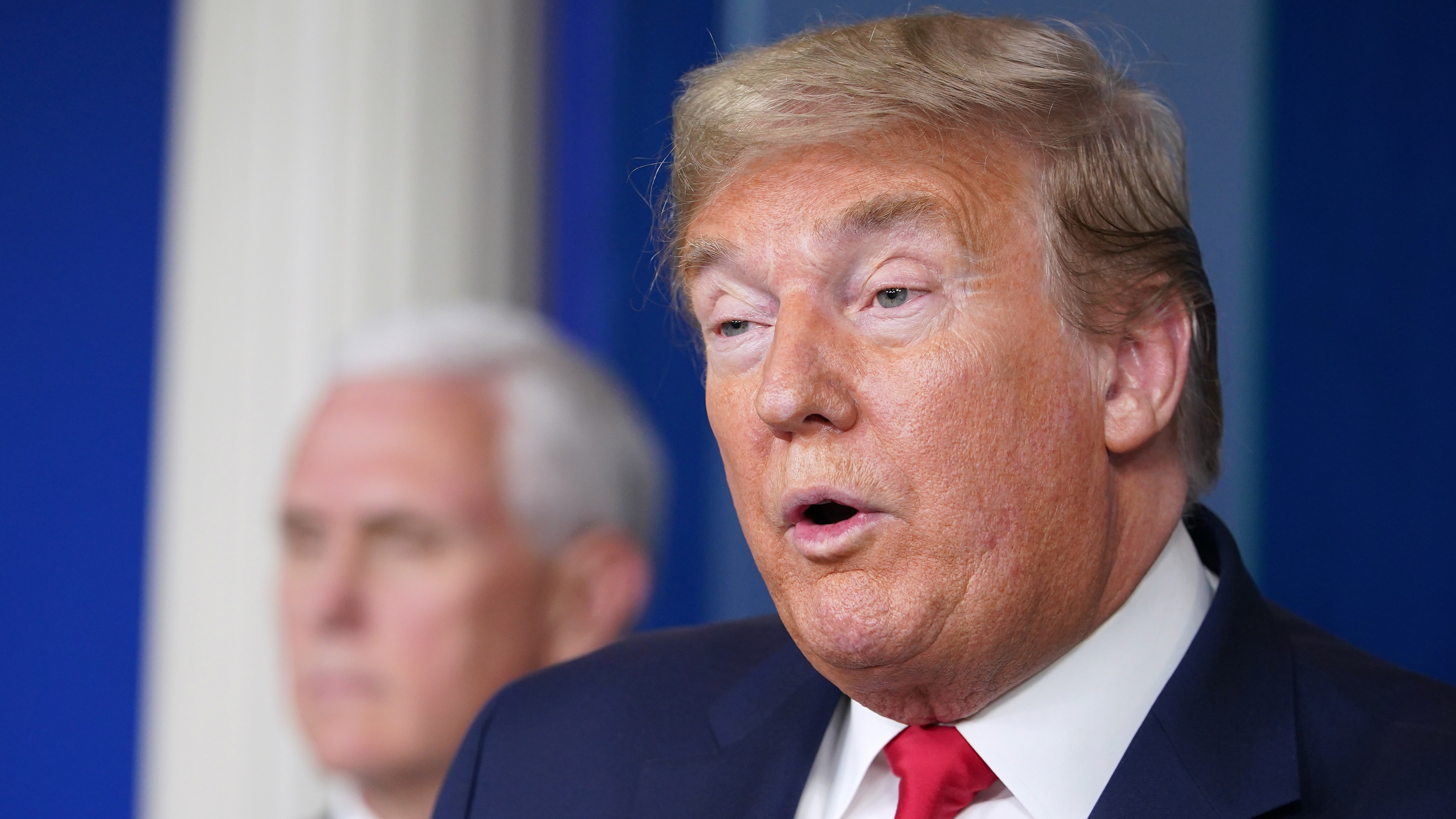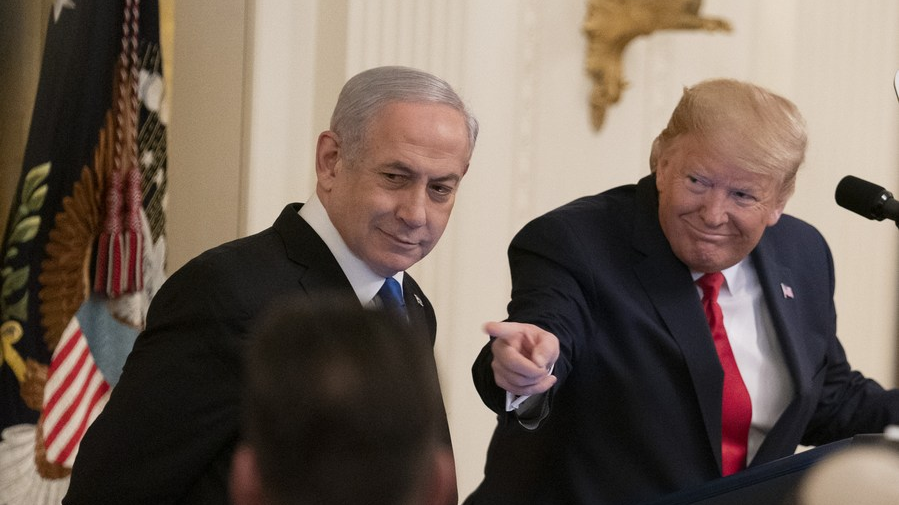
Editor's note: Yuan Sha is an assistant research fellow at the China Institute of International Studies. The article reflects the author's opinions, and not necessarily the views of CGTN.
Less than two months away from the U.S. presidential election, the news that U.S. President Donald Trump got nominated for the 2021 Nobel Peace Prize went viral across the world. Despite the low odds of a final win for a figure as controversial as Trump, the polarization of public opinions on this matter deserves attention.
Peacemaker or troublemaker?
President Trump is reported to have been nominated for helping broker a peace deal between Israel and the United Arab Emirates (UAE). But it is disputed if he serves as a peacemaker or a troublemaker for the Middle East.
Upon coming into office, Trump touted his plan to strike a "deal of the century" between Israel and the Palestinians. After the bankruptcy of this ambitious plan, he hashed out the Israel-UAE deal and made it a selling point in the upcoming election.
But this much-touted foreign policy feat immediately raised controversy as the Palestinians protested being left out in the process. Although it is still too early to tell whether this deal is a boon or a bane, but it is undeniable that a "peace deal" in the Middle East without the participation of the Palestinians would never count as truly "peaceful."
Despite the controversy over Trump's legacy on the Israel-Palestine issue, it is largely a consensus that his maneuvering on the Iran nuclear deal is destabilizing for the region. His decision to withdraw from the JCPOA against the will of all the other signing parties laid bare his disregard for multilateralism. His order for the assassination of Iranian top general Qassem Soleimani demonstrated his high tolerance for military conflict. Iran's case alone would be suffice to rebut Trump's qualification to contend the Nobel Peace Prize.
Nobel Peace Prize in controversy
The Nobel Peace Prize is the most well-known prize professed to be dedicated to world peace, but its reputation has been tarnished by being Western-centric and highly politicized, and it is the most controversial of all the Nobel Prizes.
One notable evidence is that the Nobel Peace Prize has been disproportionately generous to American presidents. As the commander-in-chief of the strongest military on earth, preoccupied in fighting wars, crowning the U.S. presidents with the Nobel Peace Prize is an irony in itself. Four U.S. presidents have been awarded the prize, all with much controversy and derision.

U.S. President Donald Trump (R) and Israeli Prime Minister Benjamin Netanyahu attend a joint press conference in the White House in Washington, D.C., U.S., January 28, 2020. /Xinhua
U.S. President Donald Trump (R) and Israeli Prime Minister Benjamin Netanyahu attend a joint press conference in the White House in Washington, D.C., U.S., January 28, 2020. /Xinhua
President Theodore Roosevelt won the prize in 1906 for brokering peace in the Russo-Japanese war, but he seemed to feel unencumbered to use military force in the Caribbean. President Woodrow Wilson won the prize in 1920 for being the "leading architect of the League of Nations," but he was known for his racist views which led several American universities topple his statues on campus. President Jimmy Carter won in 2002 for "his decades of untiring effort to find peaceful solutions to international conflicts," which is commendable, but it did not specify the achievements he made. President Barack Obama's 2009 award just months into his presidency surprised many, including himself.
The Nobel Peace Prize is also widely criticized for being hijacked for political purposes by picking candidates aligned with the Western ideology and using it as a weapon to meddle in other countries' internal affairs. The controversy surrounding the Myanmar's State Counselor, Nobel Peace Prize laureate Aung San Suu Kyi over the Rohingya issue is a case in point.
Polarizing opinions
The nomination of President Trump is even more controversial. Instead of establishing relations between nations, he is adept at decoupling them. Instead of alleviating human sufferings, he pushed for the notorious family separation plan and is turning a blind eye to the mounting deaths in his own country in the COVID-19 pandemic.
But to the surprise of many, his nomination electrified his fans across the globe. Trump allies, conservative news outlets and some Republicans applauded his nomination. Ultra-right figures, White supremacists and hate groups reveled at his nomination on social media.
Christian Tybring-Gjedde, the initiator of the nomination, is a member of the Norwegian far-right Progress Party. He is a like-minded ally of Trump, sharing his anti-immigration agenda and racial discrimination propensity. He also nominated President Trump in 2018 with another colleague for brokering negotiation on the Korean Peninsula.
This jarring acclaim of the Trump nomination signals a dangerous trend in the West. Right-wing populism has been on the rise for years, and Trump has become their idol. With a raging pandemic, a slagging economy and rising racial tensions, far-right ideology is likely to rear its ugly head again.
It would be more inspirational if the Nobel Peace Prize would go to brave doctors, nurses and first responders at the frontline saving lives, or scientists busy developing cures and vaccines, or professionals at the international institutions or NGOs coordinating public health efforts across countries. Bestowing the Nobel Peace Prize on a figure as divisive as Trump would do more harm to world peace.
(If you want to contribute and have specific expertise, please contact us at opinions@cgtn.com.)